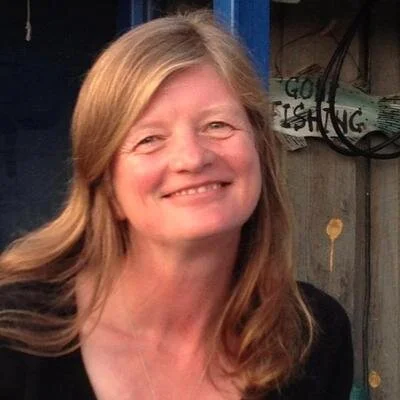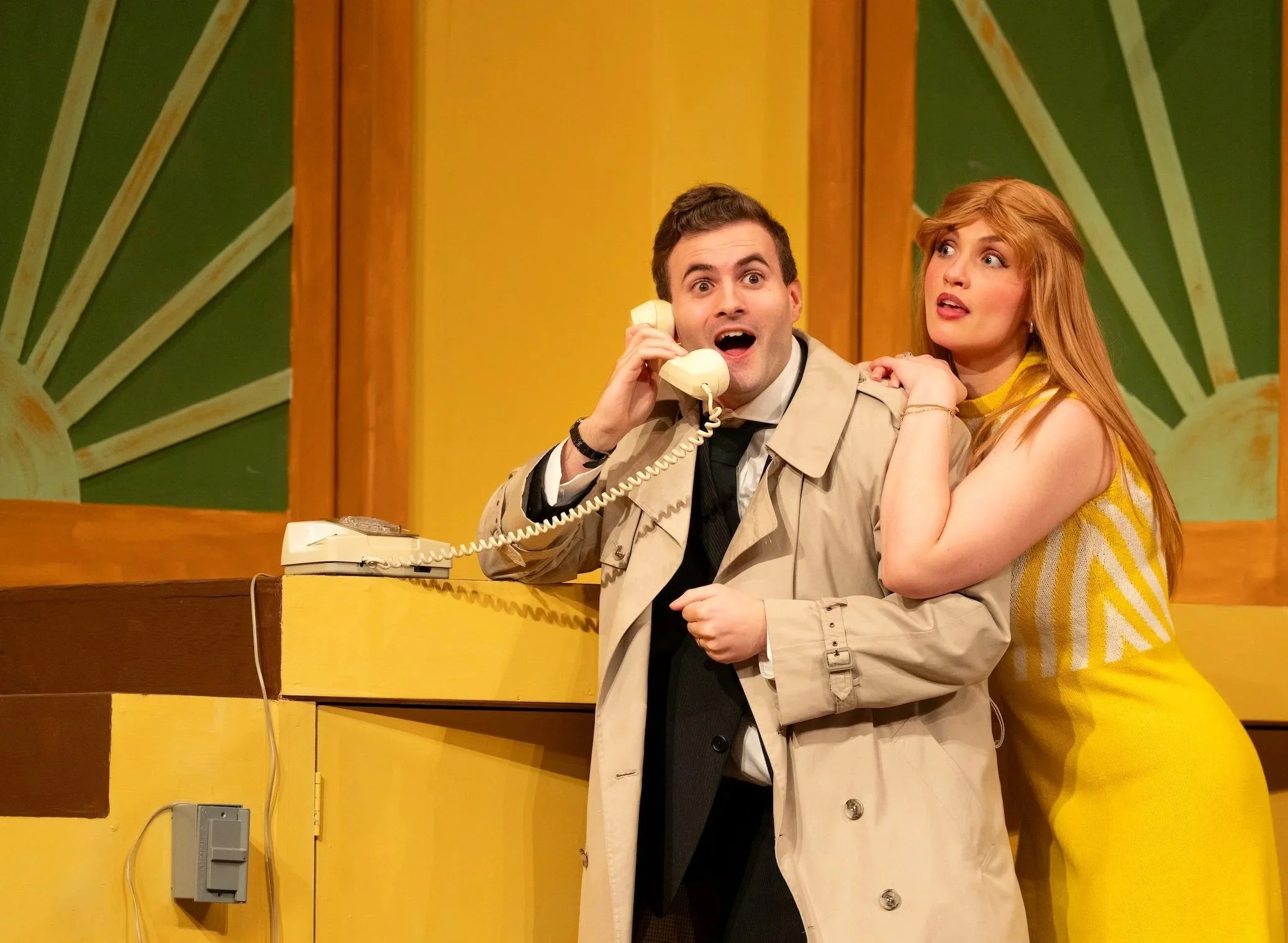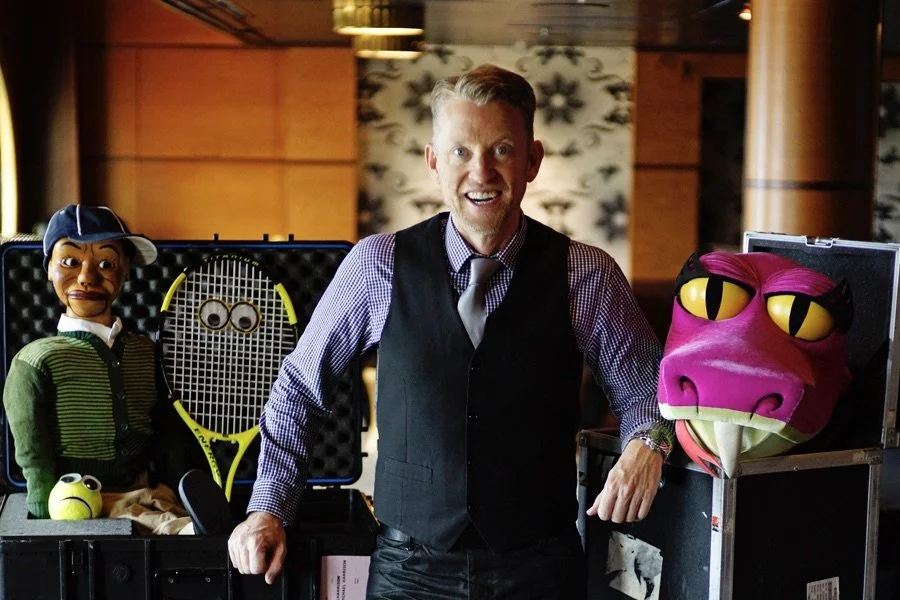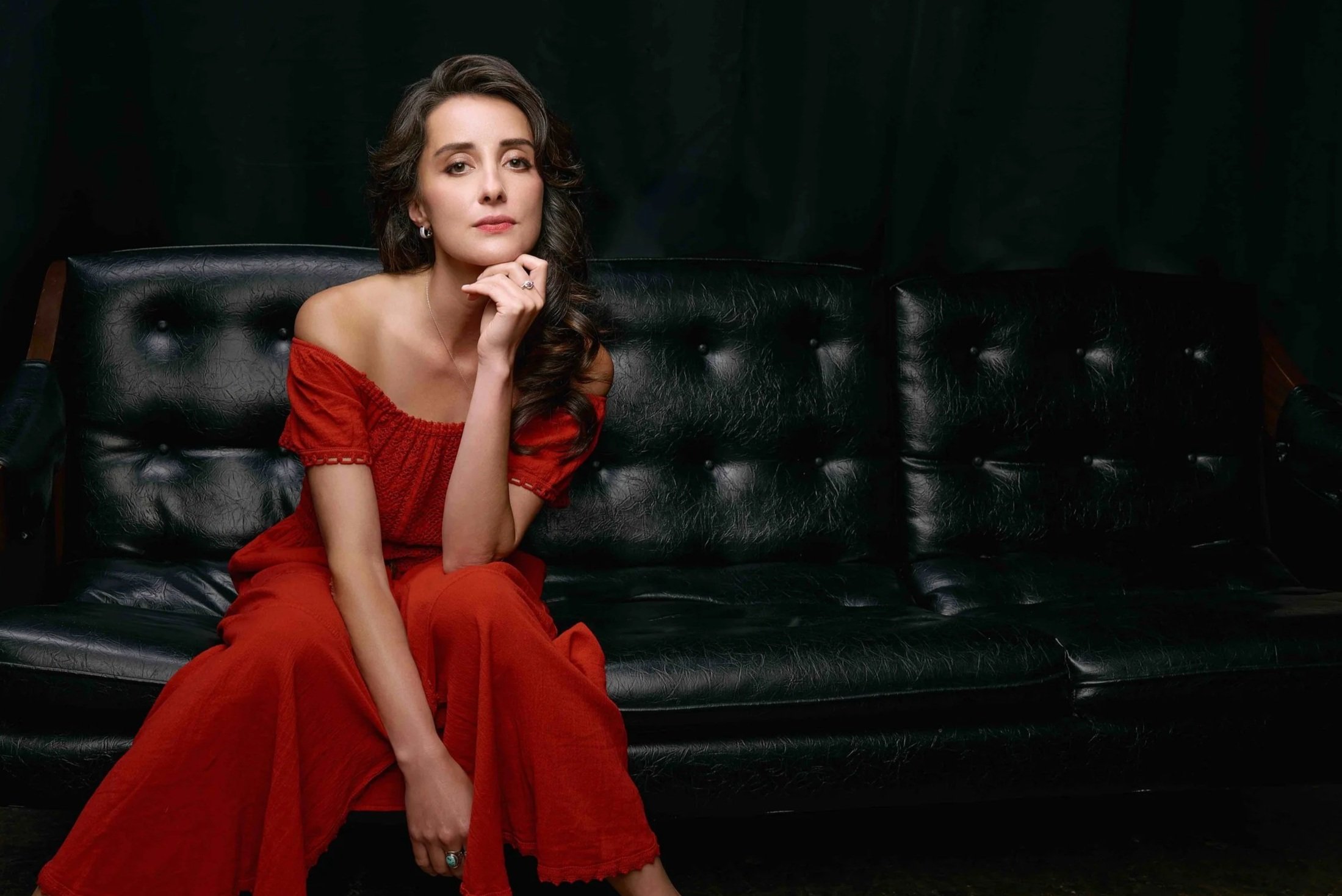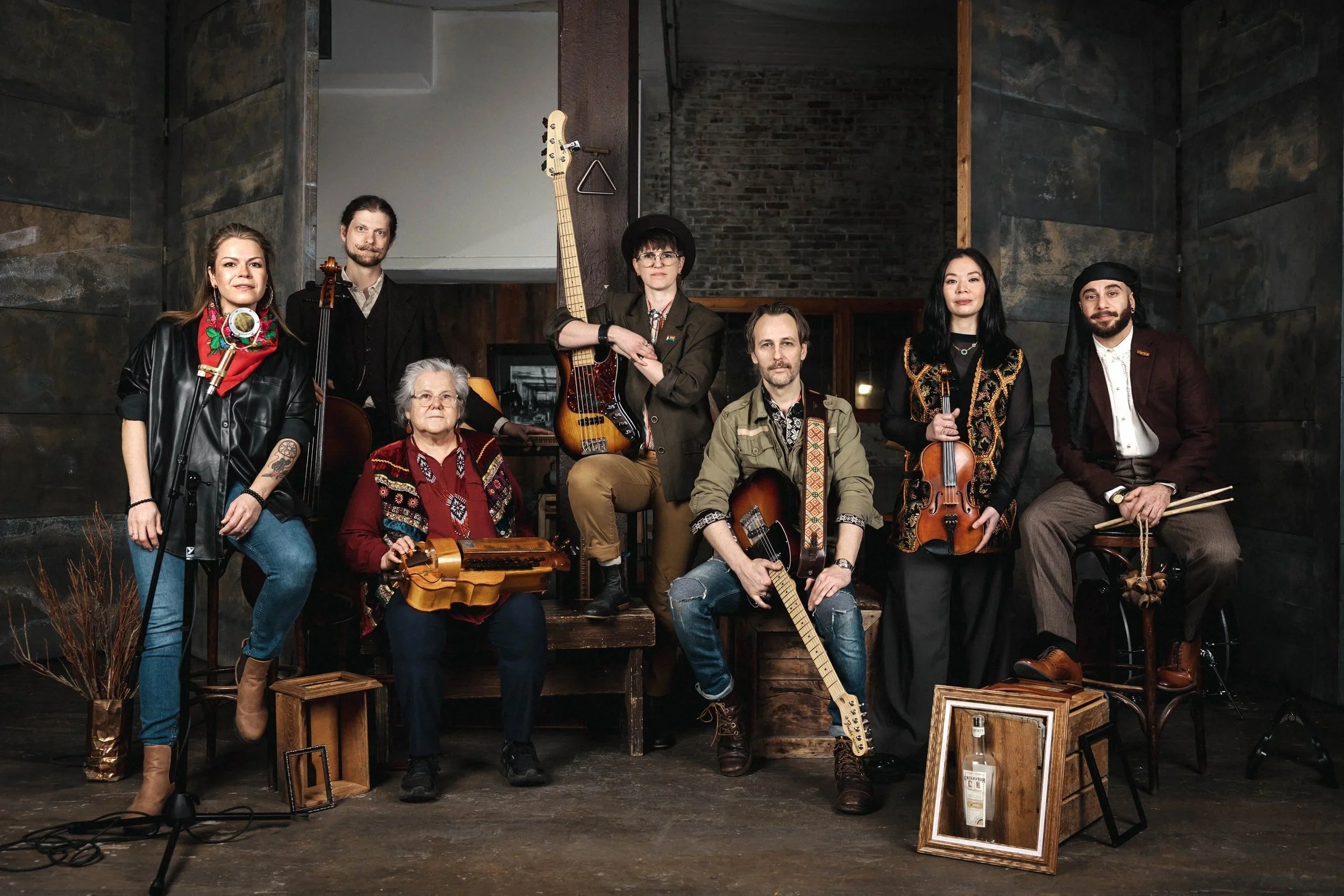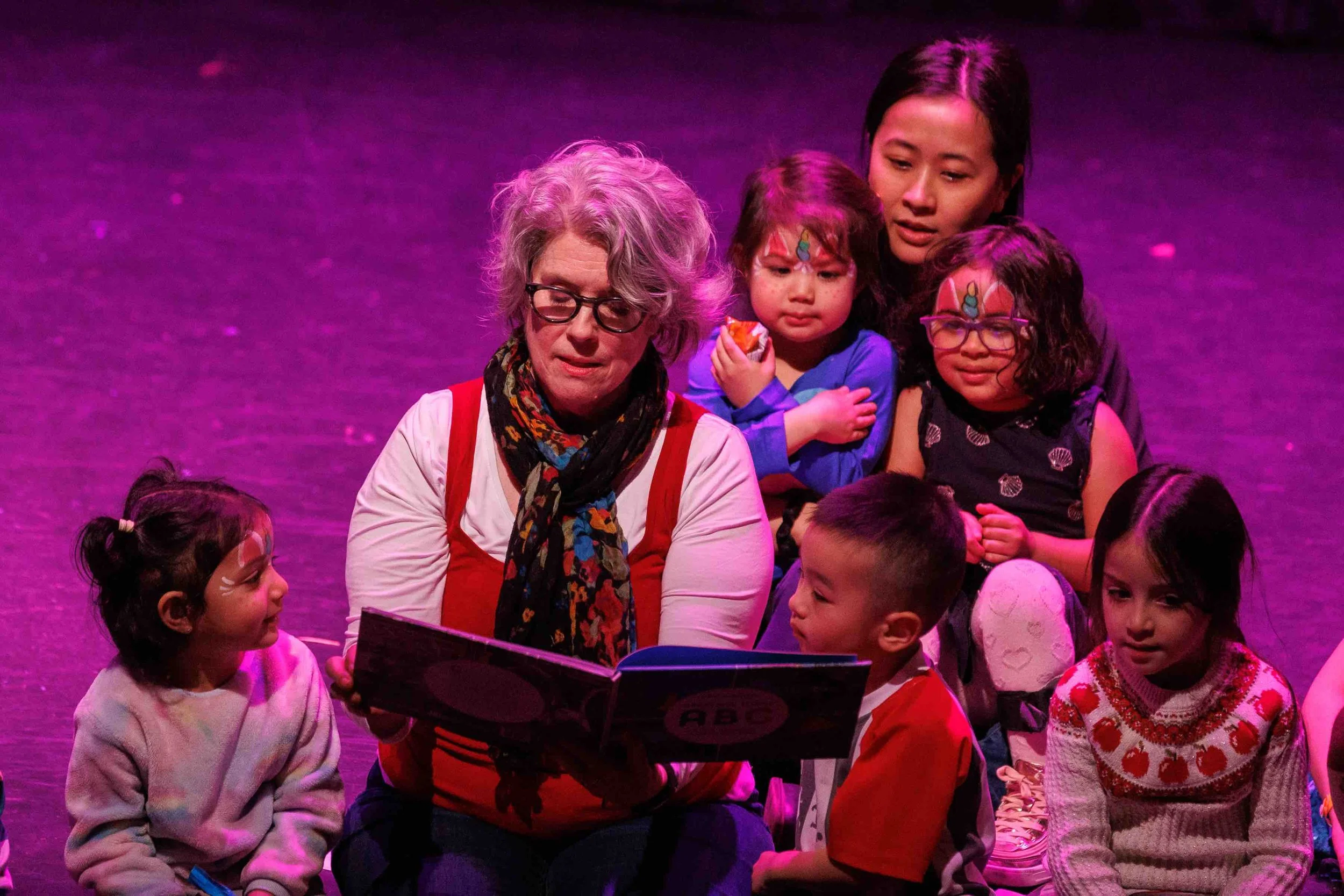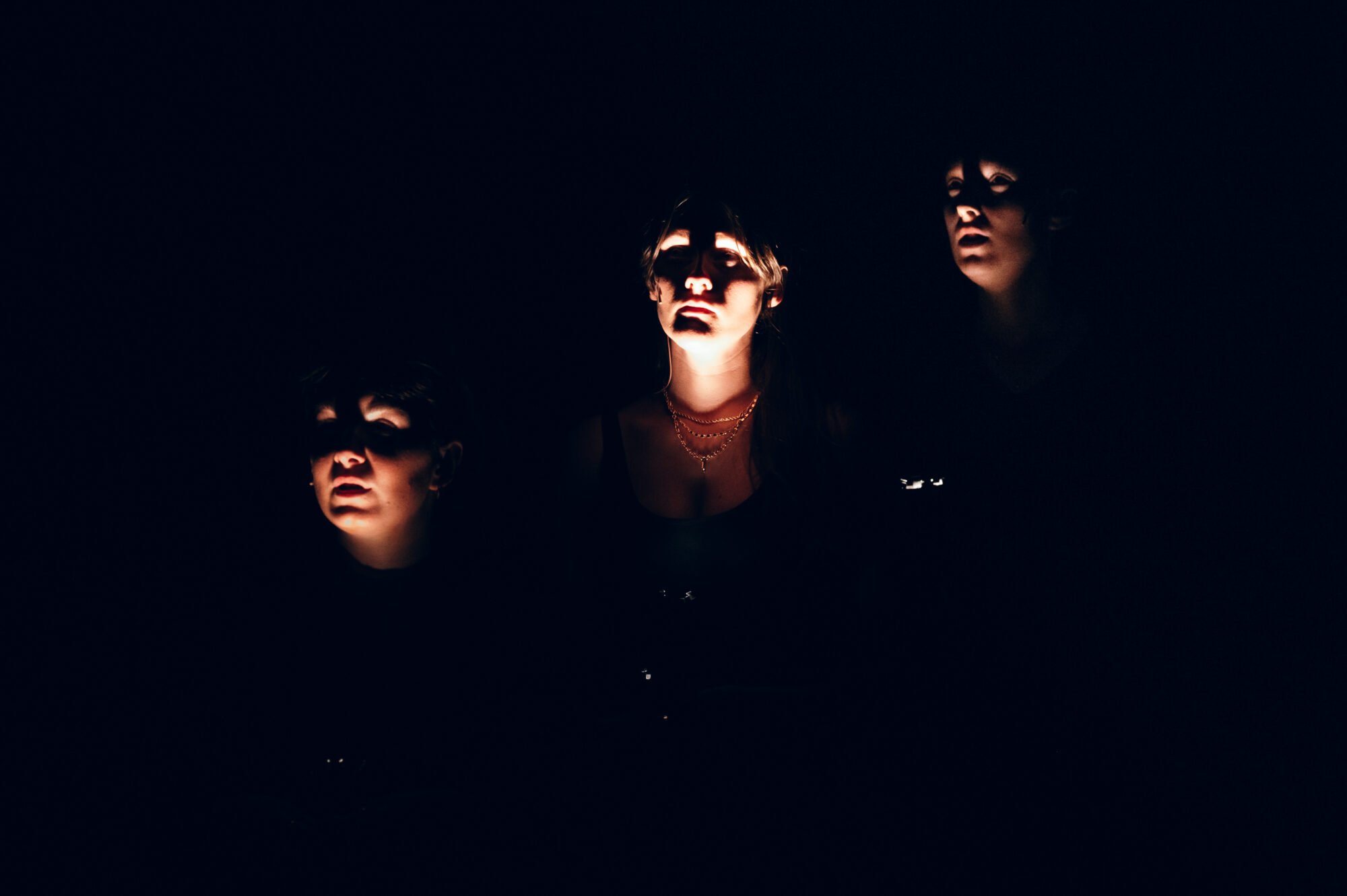Do you want what i have got? a craigslist cantata's ode to the search for online connection just got even more relevant
The cast pivots to livestream the hit musical revue from separate spaces in the Cultch
Photo by Emily Cooper
Do you want what i have got? A craigslist cantata streams from the Cultch from November 19 to 22
ONE OF WRITER-DIRECTOR Amiel Gladstone’s original stage directions for do you want what i have got? a craigslist cantata keeps echoing back to him as he works on a COVID-era remount of the hit musical revue.
Back in 2012, when he was preparing the Arts Club debut of the song cycle built entirely from Craigslist posts, he had to work hard to create a sense of isolation for the performers. That’s because the production he wrote with Bill Richardson and Veda Hille was not just about hilariously warped ads for “300 stuffed penguins” and “a children’s guillotine”. It also expressed our disconnect—our increasing loneliness and the fraught trials of attempting to connect over the internet.
“In the original production, one of the instructions, which the actors hated, was that they were not allowed to look at each other,” Gladstone recalls of the work for five singers, which would go on to tour the country. “I told them it was like a solo cabaret, and they just happened to be performing it with other people.”
Amiel Gladstone
Suffice it to say, then, that in 2020, creating that disconnect for a livestreamed remount doesn’t take as much effort. In fact, as other theatre productions struggle to integrate social-distancing measures, craigslist cantata can embrace the edicts as a way of exploring those themes. Not that it’s easy.
With even more strict regulations coming down from Dr. Bonnie Henry this past weekend, the crew at the Cultch is finding a way for each of the five actors—Meaghan Chenosky, Josh Epstein, Chirag Naik, Amanda Sum, and Andrew Wheeler—to sing from an entirely different room in the Historic Theatre. Meanwhile, keyboardist Hille and percussionist Barry Mirochnik have to accompany them from their own, separate space.
“One of the key components important to Veda and me was that it was live and that it was a piece of theatre,” Gladstone explains. “That created even more challenges, because making live music over the internet is really difficult. You can’t have musicians and singers in different Zoom circles; there’s not the specific synchronization you need for playing music…..And singing and dancing are some of the worst things you can do. So the question became, How can you be in the same room but not in the same room?”
The answer? The team will wire people as if they’re in the same room, but they won’t be in the same airspace. Welcome to musical theatre in second-wave 2020.
“We can run cables so they’re in the same audio environment but not in the same breathing environment. Are you with me?” Gladstone elaborates with a laugh.
Fortunately, the Cultch is full of different spaces, from the cavernous Historic to the Vancity Culture Lab and other nooks and crannies.
“One of the things artists are taking advantage of is there aren’t any rooms with an audience in it and a lot are using the whole building,” Cultch executive director Heather Redfern observes on the same conference call. “Transform [Cabaret Festival] used the whole building in September….So that’s interesting: the building is becoming a character on its own. It’s becoming a different kind of space.”
What’s also notable is that, when it comes to live-performed singing, dancing, and music, all the technology we have can’t really do the trick. “It’s really old-school: music is one of those things where wireless is no good because there are all these delays,” comments Redfern. Think metres and metres of thick black cable snaking through the Cultch—just one of the logistical hurdles the facility’s tech team is working through this week.
Josh Epstein and Amanda Sum in do you want what i have got? a craigslist cantata. Photo by Emily Cooper
Now, more than ever, the show is taking on new resonance—one of the reasons Redfern programmed it this fall with “pandemic artist in residence” Veda Hille. But even Redfern might not have predicted how timely, and wide-ranging, the show’s messages about the role and effect of internet-focused existence would be by mid-November. Online commerce has, of course, exploded during the pandemic. And it’s more than a little twisted, or sad, that we should turn to a consumer platform for not just supplies like medical masks and hand sani, but human contact.
“It’s about this idea of the complexity and isolation, where the brain goes in this strange personal space where you only connect with people through a portal, and how creative a place can that be or destructive a place can that be,” she says, and then alludes to the recent U.S. election: “South of the border, we saw that if you are the one who constantly chooses what to consume, it becomes what you believe.”
Heather Redfern
For Gladstone and Redfern and the craigslist cantata team, actually rehearsing and staging all this is uncharted territory. Gladstone, who is preparing to create a new musical with Hille called The Girl Who Trod on a Loaf (the story of fictional Danish lesbian opera composer Helle Ten Brix and commissioned by Toronto’s the Musical Stage Company), the experience at the Cultch will set the protocols for rehearsals to come.
When Stir spoke with him this week, he and his team were trying to figure out ways for his performers and musicians to rehearse their parts individually in those divided spaces, for instance.
“I had a job when I first came to Vancouver directing anime dubs,” he reflects. “The Japanese is already there, and when you’re doing the dubs they [the voice actors] only come in one at a time….So it reminds me of that.
“It puts a lot on Veda and the choreographer, Amanda Testini, to know not only the whole vision, but each individual’s track in that,” he continues, and then adds of musicals in general: “We’re not going to be having any of those big chorus lines any time soon.”
In the meantime, watch for Gladstone and other theatre innovators to give ever-more-creative new meaning—and hella amounts of cable—to Dr. Bonnie’s famous phrase: “together we must stay apart.”





